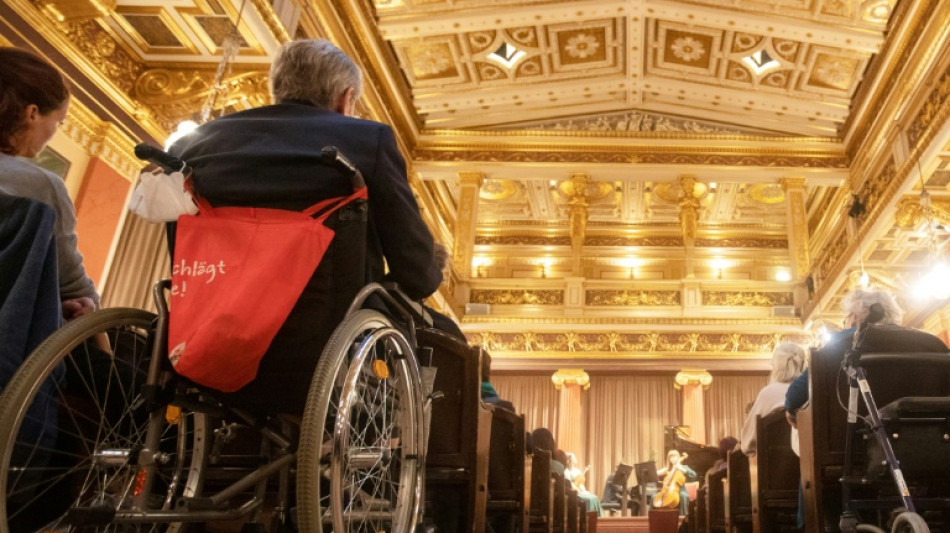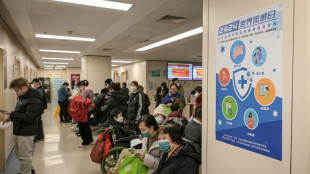
| RBGPF | -4.54% | 59.31 | $ | |
| CMSC | 0.04% | 23.11 | $ | |
| JRI | -0.83% | 12.12 | $ | |
| BCC | -2.04% | 115.05 | $ | |
| RIO | 0.76% | 59.08 | $ | |
| SCS | -2.82% | 10.99 | $ | |
| NGG | -2.92% | 56.335 | $ | |
| BCE | -2.03% | 23.16 | $ | |
| RELX | -0.66% | 46.465 | $ | |
| GSK | -1.47% | 33.26 | $ | |
| CMSD | -0.56% | 23.27 | $ | |
| AZN | 1.14% | 67.345 | $ | |
| RYCEF | 0.28% | 7.22 | $ | |
| VOD | -1.36% | 8.1 | $ | |
| BP | 0.67% | 31.33 | $ | |
| BTI | -1.69% | 36.13 | $ |

'Everything is allowed': Vienna's dementia-friendly concerts
The elegant audiences for its world-famous New Year's Concert with the Vienna Philharmonic may be the epitome of buttoned-up reserve, all tailcoats and taffeta.
But the gilded columns of Vienna's grand old Musikverein are now home to concerts where something very different happens -- where older people, often living with dementia, can let it all hang out and just go with the music.
"People can get carried away, they can dance and sing, which allows you to feel the music much more intensely," said Andreas Trubel, a 67-year-old former IT developer dealing with neurocognitive issues, who heads a self-help group for "people who forget".
He said he loved the "relaxed style" of the six-concert "Souvenir" series with people able to get up, walk around and talk as he listened to Schubert, Schumann and Brahms and a seasonal sprinkling of Christmas carols.
"Everything is allowed, every reaction is allowed and welcome," the Musikverein's director Stephan Pauly told AFP.
The series, which began in October, is a "huge success", he said, and has already become a "very beautiful and very important part" of its output, with more shows planned for the next season.
- 'Still receptive to music' -
Rows of seats are spaced out to allow for movement and wheelchairs, and there are few of the normal rules of concert-going, so people with or without dementia "feel welcome", said Pauly.
"People are still receptive to music even in an advanced stage of dementia," said the concerts' moderator Veronika Mandl, "because it connects to different areas of the brain.
"Music is memory, an emotion, a connection with different things," she said.
Mandl did "a lot of research" into music that spectators might recognise as she was coming up with the programme, she said.
And she watches closely how the audience reacts, with some leaning on each others' shoulders as they are moved.
At the beginning of each concert, which lasts around an hour, Mandl sets the tone. She tells the audience they can move around, go to the toilet if they wish, or even leave when they want.
Staff are also trained to understand people living with dementia and help them feel more comfortable.
An audience member who mumbled through a recital by a young Polish trio was gently guided to another place to give her more space.
Nursing home caregiver Iris Krall-Radulian, a trained musician herself, said many of the spectators were concertgoers before they got dementia.
"We know that (the music) has an enormous impact. They are much happier and they feel alive" after the concerts, she said.
S.Esposito--LDdC



